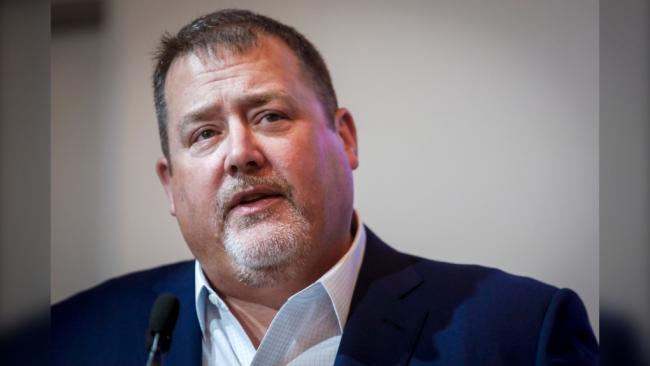Articles Menu

Apr. 27, 2022
The investment tax credit unveiled by the federal government earlier this month isn't enough to convince Canada's major oilsands producers to begin construction on a proposed massive carbon capture and storage transportation line, the chief executive of Cenovus Energy Inc. said Wednesday.
On a conference call with analysts, Alex Pourbaix said industry will need “more help” from both the federal government and the government of Alberta in order to go ahead with large-scale carbon capture and storage projects like the one proposed by the Oil Sands Pathways to Net Zero consortium.
That group — of which Cenovus is a member, along with Canadian Natural Resources Ltd., ConocoPhillips, Imperial Oil Ltd., MEG Energy Corp., and Suncor Energy Inc. — has proposed to work together on a project that would capture CO2 from oilsands facilities and transport it to a storage facility near Cold Lake, Alta, delivering about 10 million tonnes of emissions reductions per year from oilsands production.
But while Pourbaix said the recently unveiled federal tax credit for companies investing in carbon capture projects is a good start, companies need to be certain there will be additional government money over the long-term to help with building and operating the expensive technology.
“These are multibillion-dollar projects. And we have to have certainty that they are investable, and that we can manage those investments over the entire commodity price cycle,” Pourbaix said.
“I suspect, over the long term, much as we've seen in other jurisdictions, we're going to require a real collaboration.”
Proponents say a large-scale rollout of carbon capture and storage technology will be necessary if Canada is to meet its climate goals. According to environmental think tank the Pembina Institute, capturing and storing CO2 from oilsands facilities, refineries and gas plants could reduce Canada's emissions by 15 million tonnes by 2030.
There are only a handful of carbon capture projects up and running in Canada right now, but the federal government is trying to kick-start oil producers to take action through a tax credit incentive announced in the most recent federal budget.
Starting this year, companies will be able to claim a tax credit of up to 60 per cent for direct air capture projects and 50 per cent for all other eligible carbon capture projects. A 37.5 per cent tax credit is available for investment in equipment for carbon transportation, storage and use.
But Pourbaix said in some parts of the world, governments have provided up to 60 or 70 per cent of the capital costs of new carbon capture projects, in addition to providing operating support. He said the Pathways alliance will need more detail about what kind of additional support to expect before it can make a final investment decision.
Pourbaix made the comments the same day Cenovus announced a first-quarter profit of $1.6 billion, or 81 cent per share, compared with a profit of $220 million or 10 cents per share in the first quarter of 2021. Revenue totalled $16.2 billion, up from $9.3 billion in the same quarter last year.
Cenovus also announced the tripling of its quarterly dividend, to 42 cents per share a year, up from 14 cents per share a year.
Canadian oilsands producers have been posting huge profits and record cash flows against the backdrop of the war in Ukraine, post-pandemic economic recovery, and soaring global energy demand.
But Pourbaix pointed out that oil prices are cyclical, and the industry has only very recently emerged from years of depressed prices. He said when it comes to the construction of the proposed carbon capture and storage transportation line, current oil prices shouldn't be banked on.
“Oil prices right now are obviously very attractive, but we know probably before that project is ever in service, we'll probably test the bottom end of those prices again,” he said. “So we really have to look at this over the long term.”
Cenovus' total upstream production for the quarter was 798,600 barrels of oil equivalent per day, up from 769,300 a year earlier, while downstream throughput was 501,800 barrels per day, compared with 469,100 in the first quarter of 2021.
In its guidance, the company raised its expected capital spending for 2022 by $300 million to a range of $2.9 billion to $3.3 billion due to increased costs at its Superior Refinery rebuild.
[Top photo: Cenovus CEO Alex Pourbaix in Calgary, Alta., Thursday, Jan. 30, 2020. The Canadian Press/Jeff McIntosh]